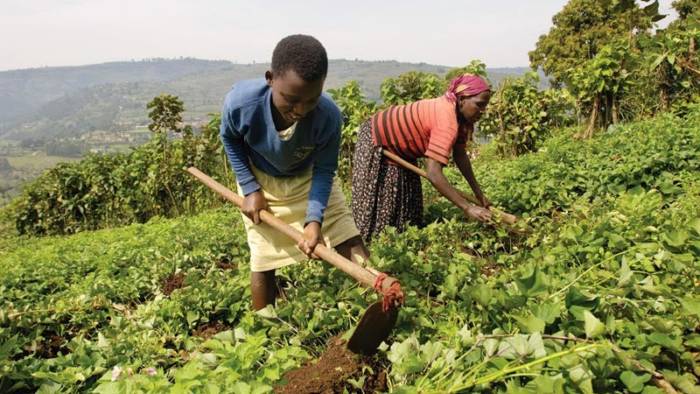By Kenton X. Chance
PARAMARIBO, Suriname, Oct. 5, — The 13th Caribbean Week of Agriculture (CWA), the premier meeting of agriculture stakeholders within the Caribbean Community (CARICOM), opens here on Monday with a focus on family farming.
The five-day meeting, which is being held under the theme “Transforming Caribbean Agriculture Through Family Farming”, will focus on three main streams of work: value chain development, climate change/climate smart agriculture, policy and strategy for agricultural revitalisation, and food and nutrition security.
And, Executive Director of the Caribbean Agricultural Research & Development Institute (CARDI), Dr. Arlington Chesney, said, on Sunday, that family farming has an important role to play in climate smart agriculture.
“… a tremendous amount of our production from farming comes from family farms in one way or the other,” he said in an interview, adding that the Food and Agricultural Organisation is trying this year to highlight the importance of family farms.
“As we look at the link to climate change and sustainability of the environment, there is an issue called sustainable intensification. And basically, this can only be practised on family farms, because it depends on a special type of agriculture [that] is best suited for family farmers.
“We think it is the way that a lot of people are going. It started off with rice, but it is now into most crops. We can push this for the family farm activity so as to keep our environment very pure,” Chesney said.
Chesney also highlighted the importance of focusing on climate change and agriculture in the Caribbean.
“It is very critical. The Caribbean is one of the more active, in a negative way, in terms of extreme weather activities, be they hurricane or floods and the year before, droughts and the impact of drought and pest control. We need to understand it, how we are going to deal with it and how we are going to plan on it,” Chesney said.
“You will see some emphasis on youth, and we will ensure that in all the workshops that we have a sprinkling of youth. We recognise the development of our culture is changing, [it is] no longer primarily land and labour, it is knowledge and information.”
Chesney said CWA has been compressed into five days, forcing organisations to be more focused in their deliberations.
The Week includes three major workshops on policy, climate change, and value chains. These deliberations will surround the main commodities of fisheries, small ruminants, roots and tubers.
“So it is a really packed week, a very, very packed week,” he said.
CWA is sponsored in part by the Technical Centre for Agricultural and Rural Cooperation (CTA), whose director, Michael Hailu, said the theme of this year’s CWA “is not only timely, given that 2014 is the International Year of Family Farming, but is highly relevant to the region’s family farms that contribute so much to its economy and way of life”.
He noted that CTA has, for many years, been supporting Caribbean agriculture through its work with various partners in the region.
“We are also taking the opportunity to highlight our efforts to encourage youth engagement in agriculture and the role ICTs can play in boosting agricultural and rural development,” Hailu said.
He noted that at CWA, CTA will showcase the finalists of the Science and Agriculture Film and Video Competition and ICT applications developed within the framework of the AgriHack Talent Caribbean Competition.
These interventions are aimed at bringing youth into agriculture.
“CTA will do its part to ensure that CWA continues to be a premier event in addressing key challenges and opportunities to transform agriculture as a vehicle for sustainable development in the Caribbean,” Hailu said.






